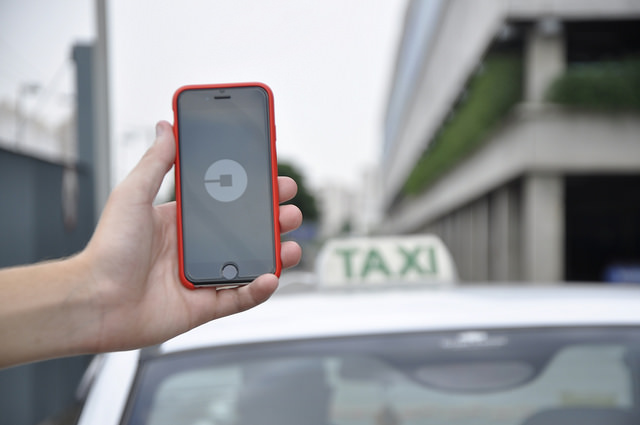Billion Dollar Unicorns: Careem Is The Latest Middle East Unicorn
According to Juniper Research, the global ride sharing market is estimated to grow to $6.5 billion by 2020 from $3.3 billion in 2015. North America is the biggest region in the industry and is expected to account for a third of the market share. Western Europe and Asia-Pacific, excluding Far East and China, are estimated to be the next big regions. While Uber maybe the biggest known brand worldwide, other local services are making a big impact in their respective regions. Billion Dollar Unicorn club member Careem is leading the market in the Middle East.

Photo Credit: Núcleo Editorial/Flickr.com
Careem’s Offerings
Dubai-based Careem was founded in 2012 by McKinsey alumni Mudassir Sheikha and Magnus Olsson. The service was initially set up as a web-based service for corporate car bookings. But as the market evolved, it transitioned to becoming an app that would allow individuals to book a car for hire. The company has expanded its geographic presence outside of Dubai as well. Today, its service is available in 11 countries and more than 52 cities in the Middle East, North Africa, and Pakistan regions. It claims that it has 150,000 drivers in these countries and helps transport more than 6 million cab riders.
Careem’s Regulatory Concerns
Like Uber, Careem is also no stranger to regulatory controversies. Last year, local taxi drivers in Egypt claimed that Careem was operating without official taxi licenses and demanded government intervention. Luckily for the companies, the Egyptian government ruled in favour of Careem and Uber, thus allowing them to operate legally in the country.
However, things are not so rosy in Abu Dhabi. Ride sharing services of both Careem and Uber were suspended in August without indicating the reason. Earlier this month, Careem announced plans to relaunch its services in Abu Dhabi. It is also adding a new service called Careem Limo to operate under the regulations for limo services in Abu Dhabi. This will make Careem the only ride-hailing app service in the city.
Even in its home town Dubai, Careem has had to revisit its pricing options. Last month, Dubai’s Roads and Transport Authority (RTA) announced a rule to impose some new charges on ride-hailing services. The Authority will be charging a surcharge of AED3 (~$0.82) per trip on Careem users. The surcharge is part of planned new regulations for transport services to deal with app-based ride-hailing platforms. Careem had earlier tied up with RTA in Dubai to allow users to book RTA taxis through the Careem app. The service is expected to be launched soon and will not be charged the surcharge.
Careem’s Financials
Careem does not disclose its detailed financials. It is not yet profitable. However, it is targeting to turn profitable by the year 2018 and is hoping to go public in that year.
Careem has been venture funded so far with $421.7 million raised from investors including Abraaj Group, Al Tayyar, Arzan Venture Capital, BECO Capital, El Sewedy Investments, Endure Capital, Kuwait Investment Authority, Lumia Capital, Muna Easa Al Gurg, Rakuten, Saudi Telecom Company, SQM Frontier Management, STC Ventures, and Wamda Capital. Its last funding round was held in December 2016 when it raised $350 million at an undisclosed valuation. The lead investors in the round included Rakuten and the Saudi Telecom Company. Analysts estimate the round helped value Careem at $1 billion.
Careem is still tiny compared to Uber. Just for perspective, Uber is present in over 400 cities globally and was last valued at $62 billion.
More investigation and analysis of Unicorn companies can be found in my latest Entrepreneur Journeys book, more




This looks like a tough market for #Careem, despite its success, #Uber, #Lyft and others have global presence with proven business models to reduce costs. In fact, as a customer of Uber and Lyft;, Lyft was actually cheaper. Gaining market share involves the uncertainty of consumers switching over.